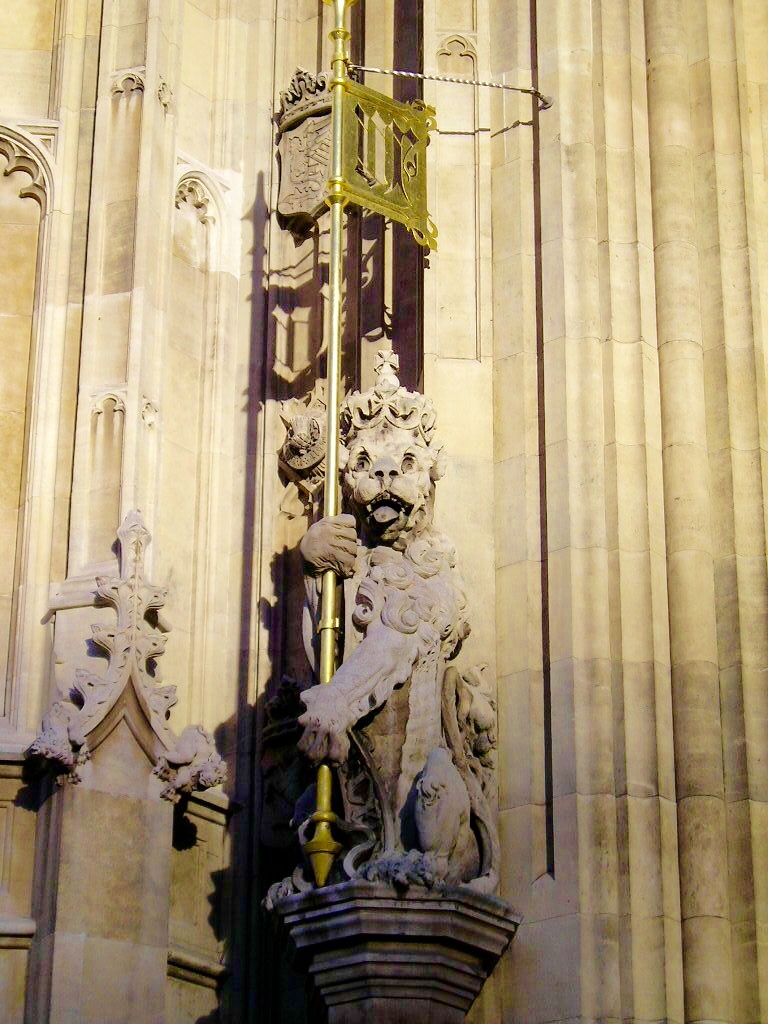Is British pragmatism in danger?
By Pierre Scordia
Those who have not studied history will struggle to grasp the nuances between French and British political thought. The English, throughout their history, have never been obsessed with their constantly evolving language. Nowadays, nobody in the British Isles seems to care! For today’s Anglophones, language is a means of communication rather than a tool for discrimination towards immigrants and foreigners. In fact, English is a kind of Frenchified German dialect, with many Danish and Graeco-Latin borrowings. You will not find a more European language than English, a result largely due to British multiculturalism almost as old as the gospel. The numerous Anglo-Saxon and Celtic barbarian kingdoms were finally unified by Franco-Norman nobility from the eleventh century, a premise for a kind of British communitarianism. These vainglorious and proud Francophone rulers never wanted to integrate with the majority; worse, they brought along their customs. The Plantagenets resided much of the year in their homeland which enjoyed a milder climate. They set foot on the island intermittently only to take advantage of the tax system and the generous regalian benefits, extremely helpful for the maintenance of their castles and lavish lifestyle. Had the Anglo-Saxons had a tabloid like the Daily Mail at that time, an anti-European party would have already emerged across the Channel.
Let’s come back to pre-Daily Mail England. Excepting the Tudors, the result of a union between Owen, an obscure noble from Wales, and a rather promiscuous French woman, Catherine of Valois, daughter of Charles VI, widow of the great Henry V and mother to Henry VI, the English completely distrusted British sovereigns. The Stuarts were a real nightmare not because they were in the closet nor that they celebrated Mass in secret, but simply because they were Scottish troublemakers. They had a perfect command of the English language and political pretensions. But everything ended well with the beheading of Charles I, although at least the English had the gallantry to spare the Queen, Henrietta of France, sister of Louis XIII. It was not until a century later that they found the ideal constitutional solution in communitarianism: enthrone a small German lineage, from Hanover, completely ignorant of Shakespeare’s language. In the name of the supremacy of Parliament, the English facilitated the non-integration of the royal family.
This typically illogical British pragmatism is also visible in religious choices: how not to admire the birth of an Anglican church during the great reign of Elizabeth I? It gathered under one roof those nostalgic for Catholic mass - the high clergy, alongside the lower clergy made up of fanatical Calvinists and Lutherans! England therefore achieved the impossible and put an end to religious wars. Those who refused conciliation were dismissed from any institutions or sent to North American colonies. How smart!
In contrast, France, with her rational mindset, ended the religious war with weapons and the conversion of Henri IV. "Paris is worth a Mass" said the good king. No! Of course not! Although Protestants were victorious, Papists managed soon after to assassinate the Bourbon king. This coup eventually lead, a few decades later, to the great Louis XIV ending the edict of Nantes, which had protected Calvinist rights: by this act the Sun King did not shine at all! The flight of the Huguenots was the greatest economic disaster that France had ever known. A century later, the French revolutionaries restored freedom of worship and tried to emancipate the people by destroying the harmful influences of the Roman Catholic Church and by evicting the haughty and uncompromising nobility. They guillotined the king and did not spare the queen, Marie Antoinette of Austria, seen by many as too foreign and treacherous. Surrounded on all sides by enemy empires and kingdoms, the revolutionaries swiftly dispatched any recalcitrant citizens to the other world. The Republic was born in blood.
Now, let’s do a leap into the 20th century: whilst Churchill was taking strong and courageous steps, the victorious French general of the First World War, Philippe Pétain, after a paternalistic and nationalistic discourse, grovelled before Hitler in Rethondes. However, the saviour of the outraged French Republic, Charles de Gaulle, managed to win recognition and isolate himself in his perfidious Albion Island.
British boldness, followed by massive financial aid from the United States contributed to the rebirth of a continent, henceforth liberal and cooperative. But after the expansionism of the European dinosaur which took on enormous proportions between 1975 and 2010, a new Saint George, David Cameron, emerged to fell the beast responsible for fifty years of peace and prosperity. Yes, St. Cameron comes to save not only his disunited kingdom but also the whole of Europe against the Brussels behemoth. It becomes clear that all agreements and treaties that were negotiated by his predecessors in Globish, an incomprehensible language to the British, are nonsense. Perhaps Major was too distracted by those many calls from minister Edwina Currie on his pager, Blair by the frequent texts from Bush on his Blackberry and Brown by how much he loathed Tony Blair.
But let’s not be too harsh on the English, because in some ways they can be very generous. They are ready to welcome into the European Union all countries of the whole continent from Iceland to Kosovo, from Norway to Turkey, from Gibraltar to Ukraine, whilst the French have a very limited idea of Europe. The former worship economic liberalism, the latter adulate a beautiful Europe loved by Zeus.
Yet Britain should remain in the Union. Yes to some of her demands, yes to the French ideals, yes to the prosperity brought by Germany’s accounting. Utopia and pragmatism: the two engines of Europe.
Published on 09/08/2015 - London
Pierre Scordia
Lecturer at University College London Holds a MPhil in history (University of Nottingham)
By the same author
https://form-idea.com/2018/04/10/gilles-of-brittany-the-anglophile-prince-who-was-murdered-1420-1450/






